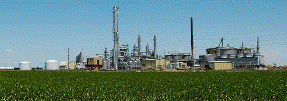Agricultural and Biological Systems Engineering, Department of

Adam Liska Papers
Document Type
Article
Date of this Version
2007
Abstract
Rapid development of regulatory mechanisms to mitigate greenhouse gas (GHG) emissions requires that the biofuel industry employ standard methods to evaluate biofuel systems comprising both crop production systems and biorefineries. Biofuel systems associated with a variety of organic feedstocks have a range of performance capabilities, and recent life-cycle assessment studies of these different systems have used inconsistent methods, leading to confusion about biofuel energy efficiency and GHG mitigation. Hence, there is a critical need for well documented life-cycle metrics for consistent biofuel evaluation that are established and supported by a national or international governing body. Standardization of net energy and GHG metrics is essential for consistent estimates of individual biofuel system performance, meeting the requirements of low-carbon fuel markets, and potential GHG emissions trading markets. To demonstrate system variability, the life-cycle energy efficiency and GHG mitigation of high performance corn-ethanol biofuel systems were determined by applying data from experimental progressive cropping systems and state-of-the-art biorefinery efficiencies. The new BESS model software ( http://www.bess.unl.edu ) for evaluating individual corn-ethanol facilities provides a standardized framework that has the flexibility to include all parameters required for determining GHG emissions reductions under a range of conditions and system configurations.


Comments
Published in 2007 Indiana CCA Conference Proceedings. Sponsored by the Indiana Certified Crop Advisor Program.